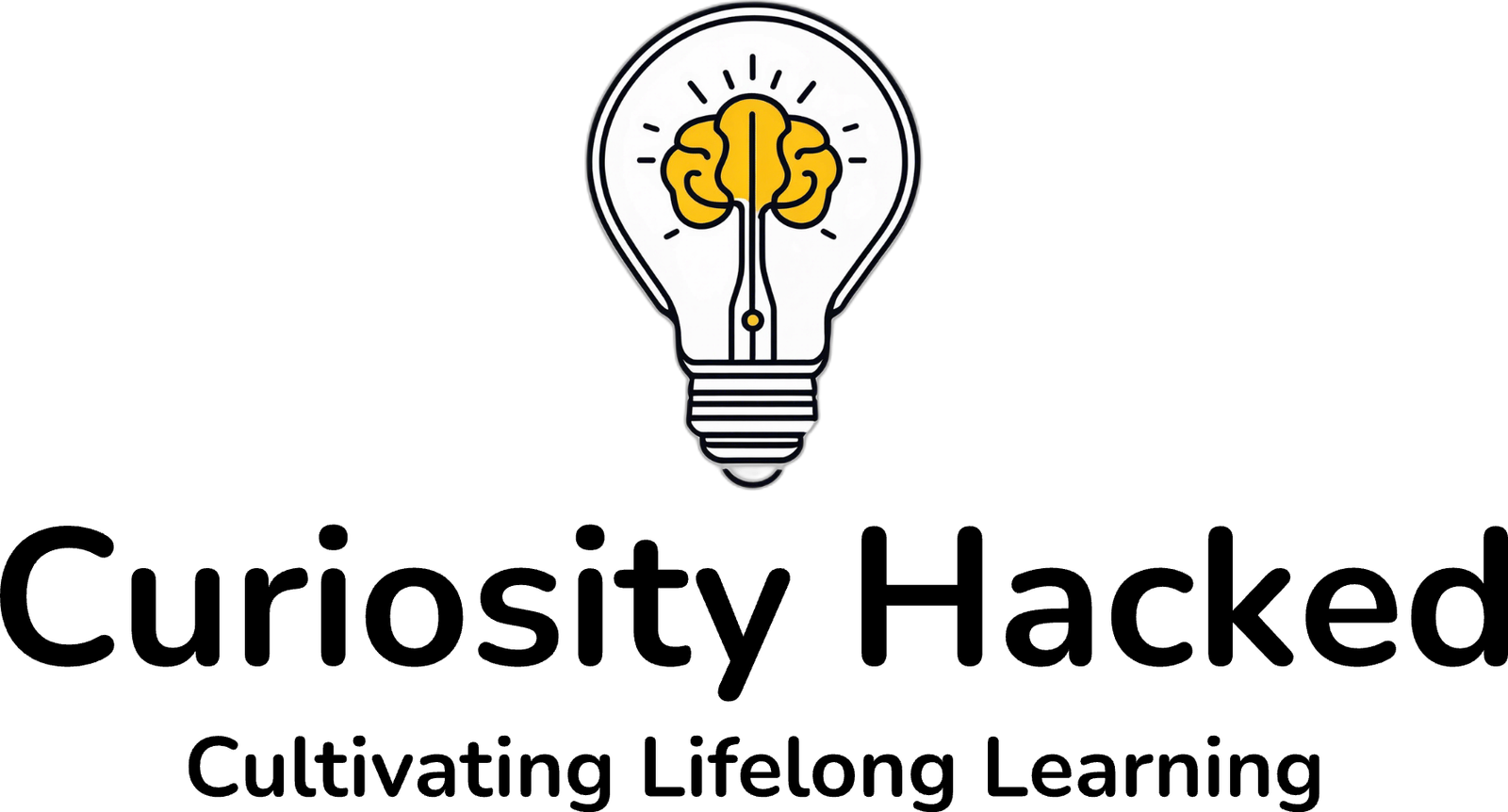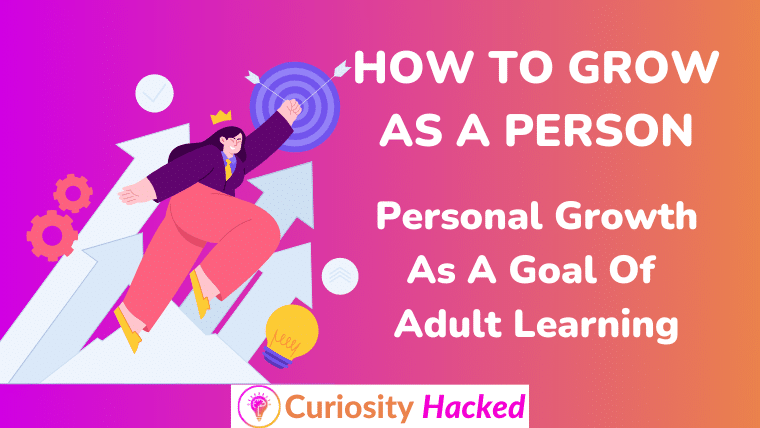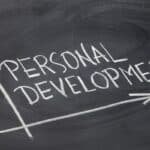In today’s rapidly changing world, personal growth and adult learning are no longer just luxuries but necessities. Embracing the lifelong journey of improving oneself equips us with the tools to thrive and adapt, regardless of what life throws our way.
Join us in this insightful article as we delve into the positive psychology of how to grow as a person, explore the opportunities available for adult learning, and provide tips and strategies for making continuous progress toward goal setting, never stop learning, and becoming the best version of ourselves.
Defining Personal Growth and Adult Learning

More Knowledge Has A Positive Impact On Self Worth
Personal Growth refers to the process of self-improvement, where an individual actively seeks to better themselves emotionally, mentally, and spiritually. It encompasses various aspects of an individual’s life, such as physical, emotional, spiritual, and intellectual.
On the other hand, Adult Learning is the process of acquiring new skills and knowledge during adulthood, often to adapt to changes in personal and professional life. This is because, as we mature, our needs and aspirations evolve, prompting us to seek out new learning experiences that help develop our expertise, enhance our competencies, and expand our horizons.
“Anyone who stops learning is old — whether this happens at twenty or at eighty. Anyone who keeps on learning not only remains young but becomes constantly more valuable — regardless of physical capacity.”
~ Henry Ford
Individuals can enhance their self-understanding, adaptability, and overall well-being by engaging in adult learning and self-betterment, paving the way for a more fulfilled and meaningful life.
In return, personal expansion encourages individuals to seek out learning opportunities. It motivates them to apply everything acquired, knowledge, and skills to various aspects of their lives, making each moment more enriching and fulfilling.
By constantly focusing on learning and growing, we foster a positive mindset and pave the way for a meaningful and purpose-driven life, ultimately contributing to our overall well-being, mental health, and authentic and true self-actualization.
Key Points
- Personal growth – This is the process of self-development.
- Adult learning is the process of acquiring new skills and knowledge in adulthood.
- There is a positive feedback loop between personal growth and adult learning.
- Adult learning can contribute to personal growth and vice versa.
Benefits of Personal Development Through Adult Learning

The benefits of self-development through adult learning are numerous and highly significant in empowering individuals to lead more fulfilling and successful lives.
One of the crucial advantages of continuous learning is enhanced self-awareness. By exploring various topics and undertaking personal development, adults can better understand themselves and their unique capabilities, strengths, and weaknesses.
Being more self-aware can lead to real headway in improved mental health, self-esteem, and confidence as individuals witness their progress and achievements through their learning journey.
Another essential benefit of continuous practice and cultivation of the self through adult learning is the development of better decision-making and problem-solving abilities. As individuals challenge themselves and expand their knowledge, they become more equipped to analyze situations, make informed choices, and efficiently solve issues that may arise in their everyday lives.
“Each problem that I solved became a rule which served afterwards to solve other problems.”
— Rene Descartes
Adaptability and resilience are essential in today’s rapidly changing world; adult learning can foster these traits. As people acquire new skills and become more comfortable with constant progress, they can better face challenges and adjust to evolving circumstances no matter what life throws at them.
Lastly, adult learning often leads to an expanded social and professional network. Adults connect with like-minded individuals with similar interests, goals, and values by participating in various courses, workshops, or online communities. These connections enrich their learning journey and provide valuable personal and professional growth opportunities.
Consequently, adult learning enables individuals to transform their lives and reach their full potential, demonstrating that the actual benefits of personal development are profound and help them grow as a person.
Key Points
- Enhanced self-awareness
- Improved self-esteem and confidence
- Better decision-making and problem-solving abilities
- Increased adaptability and resilience
- Expanded social and professional network
Strategies To Successfully Grow As A Person Through Adult Learning In Everyday Life

Strategies for growing as a person and adult learning are essential for navigating the complex and ever-changing personal and professional development landscape.
One of the non-negotiable elements in fostering such improvement is setting clear goals and intentions, which provide a roadmap and direction for your educational journey. This might involve identifying specific skills or knowledge you wish to acquire or recognizing the milestones you want to achieve. Doing so helps you maintain focus and motivation, stop learning, and effectively allocate your time and energy to activities that align with your desired outcomes.
In addition to setting goals, adopting a growth mindset is a critical foundation to continue successfully growing as a person throughout life. This mindset is characterized by the belief that dedication and hard work can cultivate and improve intelligence and abilities. By embracing this perspective, you are better equipped to overcome obstacles, recover from setbacks, and engage constructively with feedback – ultimately enhancing your development and expansion..
“Most of the important things in the world have been accomplished by people who have kept on trying when there seemed no hope at all.”
~ Dale Carnegie
Complementing this mindset is embracing life-long learning, showcasing your willingness to continuously expand your knowledge and skills throughout your life. This commitment enriches your personal and professional lives and helps you adapt to the ever-evolving demands of the world.
Growing as a better person often also involves seeking new experiences and challenges that expose you to diverse perspectives and new ideas, pushing you to adapt and grow as a person. This might include attending workshops, pursuing higher education, or traveling to new places.
Finding a mentor or support network facilitates your journey by offering guidance and insights from their own opinions and experiences, helping you navigate challenges and stay focused on your goals.
Lastly, practicing self-reflection and self-assessment is pivotal in understanding your strengths, weaknesses, and areas for improvement. Regular check-ins with yourself and honest evaluation of your progress empower you to adjust your strategies, learn from your setbacks, focus, and ultimately excel in your real growth and development.
By implementing these, you are well on your way to building a foundation for continuous practice, which means becoming a better version of yourself and thriving in your adult learning journey.
Key Points
- Setting clear goals and intentions
- Adopting a growth mindset
- Embracing life-long learning
- Seeking out new experiences and challenges
- Finding a mentor or support network
- Practicing self-reflection and self-assessment
Practical Tips for Incorporating Adult Learning Into Your Life

Adult learning is essential for personal and professional advancement; practical tips and resources are available to help incorporate it into your everyday life too. Embracing lifelong learning can enhance overall personal evolvement and development, essential in today’s fast-paced world.
Explore online courses and workshops that cater to your interests and skill levels, offering convenience and cost-effectiveness. Learn at your own pace and easily explore various subjects and topics from home with thousands of options available on online platforms.
Attend local classes and seminars to engage with others with similar interests and expand your social network. These in-person learning environments offer interactive and immersive experiences specific to your interests.
Identify workplace learning opportunities to advance career development and increase productivity and job satisfaction. Many companies offer training courses and workshops for professional development, so take advantage of them to acquire new skills.
Self-help resources like books, podcasts, and videos can be consumed at your own pace and cater to specific interests, making them invaluable learning tools for personal advancement and relaxation.
Engage in volunteer work, community service, or join clubs to enhance your skills and contribute to a cause you’re passionate about. It provides hands-on learning and helps you make meaningful contributions to society.
Incorporating adult learning into a fulfilling life leads to personal and self-growth and professional advancement, allowing one to remain adaptable in a changing world. Seek and embrace learning opportunities to continue growing and stay ahead. The key to lifelong learning is remaining curious, self-aware, open-minded, and eager to learn.
Key Points
- Explore online courses and workshops.
- Attend local classes and seminars.
- Find learning opportunities in your workplace.
- Utilize self-help resources like books, podcasts, and videos
- Engage in volunteer work, community service, or clubs for skill-building
Overcoming Barriers to Development and Adult Learning

Overcoming barriers to personal enrichment means that improvement and adult learning are vital to promoting personal and professional development. Many individuals face numerous obstacles, such as time constraints, the fear of failure, criticism from friends, and, frequently, inadequate attention to personal evolvement, making it difficult to reach and realize their full potential.
Time-management strategies play a crucial role in overcoming these barriers, as they help individuals plan their learning sessions effectively, ensuring they allocate adequate time for personal development activities alongside their regular activities. One such strategy is the Pareto Principle, also known as the 80/20 rule, which emphasizes focusing on the most critical tasks that yield the most outstanding results.
Prioritizing learning and development of oneself involves recognizing the value of investing time and effort in oneself. It may require creating a designated schedule for learning, setting realistic goals, and identifying areas of improvement.
Additionally, mindset plays a crucial role in overcoming barriers to learning. Addressing the fear of failure, criticism, and judgment is essential to foster a conducive environment for individual development. Cultivating this mindset, wherein challenges are seen as opportunities for improvement rather than threats, develops resilience and facilitates progress. Engaging in activities such as self-reflection, seeking feedback, maintaining a positive outlook, and learning from experiences can help overcome these fears and foster a passion for self-enhancement.
“Everything you want is on the other side of fear.”
~ Jack Canefield
Moreover, developing patience and perseverance is paramount, as individual growth and learning is an ongoing, lifelong process. Embracing setbacks, mistakes, and difficulties as valuable parts of the journey, rather than hindrances, encourages individuals to keep progressing despite their challenges.
Lastly, embracing a balanced approach to personal evolution and learning is essential in preventing burnout and ensuring a sustainable pace of growth in professional life. By incorporating self-care routines, engaging in recreational activities to recharge, setting healthy boundaries, practicing transparency, and nurturing social connections, individuals can establish a harmonious equilibrium that benefits both their professional and personal lives.
Ultimately, overcoming barriers to development and adult learning empowers individuals with the knowledge, skills, and resilience required to navigate life confidently and succeed.
Key Points
- Time-management strategies
- Prioritizing learning and personal fulfilment
- Addressing fear of failure, criticism, and judgment
- Developing patience and perseverance
- Embracing a balanced approach to personal development and learning
Measuring Your Progress

It is an ongoing journey that requires continuous effort and self-reflection.
Setting benchmarks and milestones that will act as guideposts along the way is crucial to ensure progress and maintaining a sense of achievement. These markers provide a clear picture of where you stand in relation to your goals and help you identify areas that require improvement. By setting boundaries and breaking down your aspirations into smaller, achievable steps, you can more easily measure your success and stay motivated in your pursuit of personal enhancement.
Reflecting on accomplishments is essential to this process, as it allows you to connect your past self with a deeper sense of self-understanding and gratitude. By taking time to assess your past self and achievements routinely, you can better understand your strengths, weaknesses, bad habits, and opportunities for growth. Doing so also serves as a reminder of how far you’ve come and instills a sense of pride in your progress.
Regular self-assessment and check-ins are invaluable tools in identifying and overcoming any obstacles that may arise during your journey. By consciously evaluating your progress, you can ensure that you are on the right track and make any necessary adjustments to achieve your desired outcomes. Additionally, you’ll be able to pinpoint any potential setbacks and devise strategies to overcome them.
“Being entirely honest with oneself is a good exercise.”
~ Sigmund Freud
One of my non negotiables is utilizing feedback from others; it is another important aspect of measuring progress. By seeking out advice and constructive criticism from friends, colleagues, mentors, life coach, or even a family therapist, you can gain an external perspective on your personal development and hone in on areas that may require improvement. This feedback can be vital in refining your path and setting appropriate expectations for your future progress and next action step.
Finally, it’s most important thing is to celebrate your wins and learn from your setbacks. Acknowledging and rewarding your past accomplishments is an encouragement to continue pushing forward and demonstrably proves that the development of oneself is possible no matter what. Encourage each other by sharing your wins when you try something new with someone else.
Conversely, setbacks should not be viewed as failures but rather as opportunities to learn valuable lessons and make necessary adjustments. By adopting this mindset, you can overcome challenges and remain steadfast on your path to self-actualization, continuously monitoring and measuring your progress along the way.
Key Points
- Setting benchmarks and milestones
- Reflecting on accomplishments
- Regular self-assessment and check-ins
- Utilizing feedback from others to refine path
- Celebrating wins and learning from setbacks
In conclusion, the importance of personal growth and adult learning cannot be overstated. Investing in ourselves unlocks the potential for personal and professional success.
Whether it’s learning a new skill, pursuing higher education, or simply taking the time to reflect and grow as a person, there are countless ways to embark on a life-long journey of self-enhancement and self-growth.
So, let’s take a step forward and embrace the power of personal growth and adult learning. The possibilities are endless to grow as a person!
Frequently Asked Questions
1. What does it mean to grow as a person?
When you grow as a better person yourself, it means that you are on a path of personal growth and self-betterment. This person’s self-growth entails acquiring new knowledge, your own opinions, experiences, and perspectives, as well as wishing for things such as refining your character and building better relationships. Personal growth means personal self-growth is a continuous process that ultimately helps you become the best version of yourself.
2. What is the importance of personal growth?
Personal growth is essential not only for your well-being but also for those around you. It helps you better understand yourself, realize your purpose, and how you can contribute positively to the world no matter what. Moreover, personal growth leads to self-cognizance, self-confidence, and greater resilience, making you a better person and more equipped to handle life’s challenges.
3. How do I know if I need to grow as a person?
If you find yourself stuck in the same routines, feeling unfulfilled, or facing recurring problems in a romantic relationship, your relationships, your life happened, or your career, then realize it may be time to grow as a person and an individual. Another sign is if you notice that you keep making the same mistakes, and things you’ve done in the past are no longer bringing you happiness, inner peace, or satisfaction. Being more aware of yourself is crucial for recognizing when you need to grow, and accepting this need is the first step toward change and personal development.
4. What is a good starting point for personal growth?
A good starting point is identifying your strengths and weaknesses, talents, and areas where you need improvement. This involves self-reflection, feedback from others, and an openness to change. Additionally, set clear goals for your growth and develop a plan that outlines the steps you will take toward accomplishing these goals. Remember that personal growth is an ongoing process and requires commitment, time, and effort.
5. Are there any 10 ways to grow as an individual?
While there is no one-size-fits-all approach to personal growth, here are 10 ways to grow and help you become the best version of yourself:
- Embrace lifelong learning and continuous education.
- Step outside of your comfort zone and embrace new experiences.
- Develop emotional intelligence and practice empathy.
- Cultivate resilience and a growth mindset.
- Develop strong communication skills.
- Set clear goals and commit to achieving them.
- Develop healthy habits and practice self-care.
- Build and maintain strong relationships with others.
- Engage in self-reflection and practice mindfulness.
- Seek mentorship or guidance from experienced individuals.










